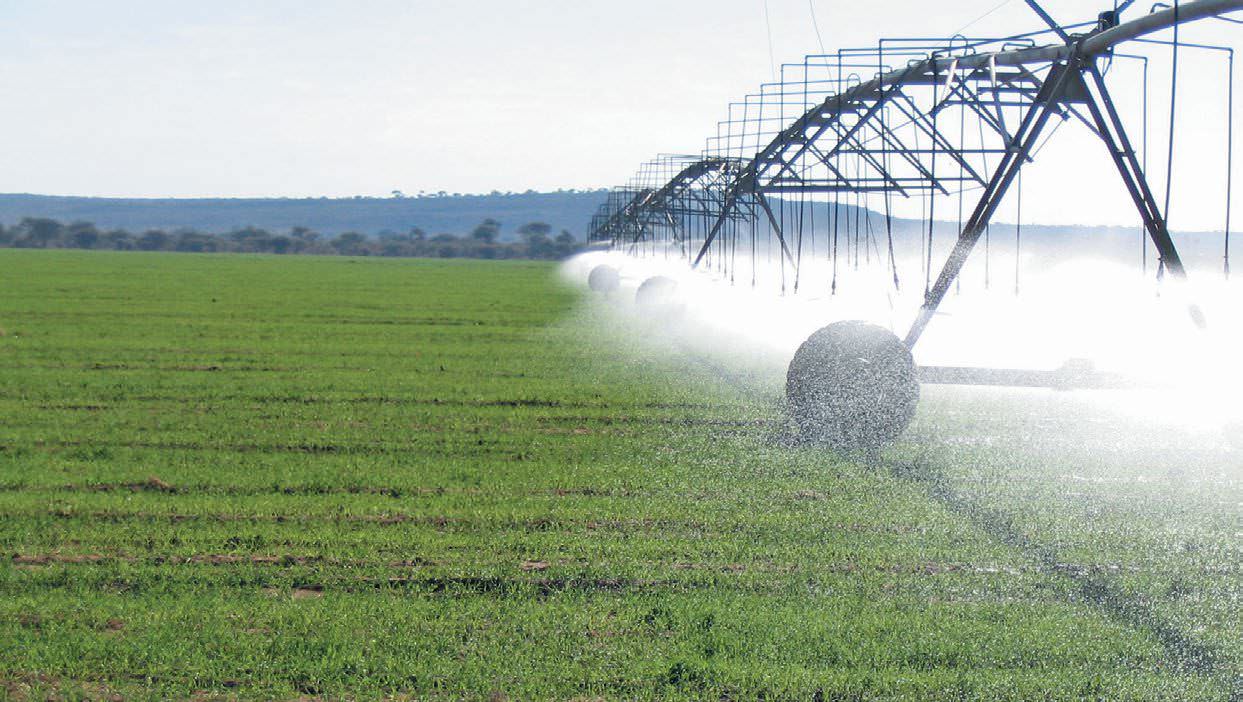Prøve GULL - Gratis
Addressing The Risk Of Polluted Irrigation Water
Farmer's Weekly
|20 January 2017
A recent study published by the Water Research Commission highlights the urgent need for identifying on-farm treatment options to help reduce the high levels of microbial contamination in irrigation waters, thereby reducing the associated food safety hazards for consumers. Denene Erasmus summarises some of the report’s key findings.

Many of South African rivers from which water is drawn for agricultural irrigation purposes are carrying extraordinarily high pathogenic loads. Produce irrigated using this water are often minimally processed fresh fruit and vegetables or products that are eaten raw.
The risks of using this water to produce edible crops have been weighed against the backlog of providing sanitation services and food insecurity by various local research organisations, including the South African Water Research Commission (WRC). The WRC, in co-operation with the Department of Agriculture, Forestry and Fisheries (DAFF), published a report titled, ‘Scoping study on different on-farm treatment options to reduce the high microbial contaminant loads of irrigation water to reduce the related food safety risk’. According to the report, in addition to the threat to consumer health, large-scale outbreaks of food-borne illnesses will affect sales and damage consumer confidence in local produce. Such outbreaks could also result in legal challenges that could potentially prevent entry into lucrative export markets, as well as produce possibly being rejected by local consumers. “The consequences would be disastrous for SA agriculture considering that this sector is one of the largest employers of labour in the country and rapidly increasing in economic importance,” the report reads.
CAUSES OF RIVER POLLUTION
According to the study, insufficient sanitation facilities and inadequate sewage treatment works throughout South Africa are considered the primary sources of pollution. Sanitation facilities in rural areas, in particular, are often inadequate for the size of the populations residing in those areas. “Consequently, rivers have become receivers of waste and waste water while still being used for agricultural irrigation,” says the report.
Denne historien er fra 20 January 2017-utgaven av Farmer's Weekly.
Abonner på Magzter GOLD for å få tilgang til tusenvis av kuraterte premiumhistorier og over 9000 magasiner og aviser.
Allerede abonnent? Logg på
FLERE HISTORIER FRA Farmer's Weekly
Farmer's Weekly
Infrastructure, policy, and finance will be the African continent's growth drivers
Africa's agricultural potential is vast, but inefficiencies in infrastructure, trade policy, and finance limit growth. Investments in transport, cold storage, irrigation, and digital trade systems, among others, are key to unlocking faster, cheaper, and more efficient agricultural trade.
3 mins
January 2-9, 2026

Farmer's Weekly
SAPPO Academy showcases skills development and small business success
The South African Pork Producers' Organisation (SAPPO) Academy, a training organisation that promotes animal, environmental, and public health in the pig industry through knowledge transfer, recently hosted a mini development symposium in Pretoria. The event included an afternoon of meaningful dialogue, strategic learning, and leadership exchange, effectively bridging academic insight with real-world industry innovation.
3 mins
January 2-9, 2026

Farmer's Weekly
Backing for SA Canegrowers as sugar imports soar
Coenie Snyman, winemaker and founder of Rock of Eye Wines, was named the 2025 Diners Club Winemaker of the Year for his Rock of Eye Cabernet Sauvignon 2022, while Marnich Aucamp, assistant winemaker at Stellenbosch Vineyards, won the Young Winemaker of the Year award for his Stellenbosch Vineyards Credo Chenin Blanc 2024 at a gala dinner near Kleinmond in the Western Cape.
1 mins
January 2-9, 2026

Farmer's Weekly
New or used? A practical guide to second-hand farm equipment
Second-hand farm machinery can deliver excellent value, if you know what to look for. Western Cape equipment broker Debbie Smit gave Lindi Botha practical advice to help farmers decide when to buy new, when pre-owned is the smarter choice, and how to avoid the costly pitfalls that often catch buyers off-guard.
4 mins
January 2-9, 2026

Farmer's Weekly
The story of the Drakensberger beef cattle breed's evolution in Africa
The Drakensberger cattle breed has been part of the South African landscape for ages. So-called black indigenous cattle existed in South Africa as early as the 15th and 16th centuries and formed the foundation of the current Drakensberger beef cattle breed.
4 mins
January 2-9, 2026

Farmer's Weekly
Man vs machine - which works best in SA's farming sector?
South African farmers have embraced both mechanisation and staffing solutions to improve farm level efficiency. Sabrina Dean investigated the pros and cons of both and filed this report.
9 mins
January 2-9, 2026
Farmer's Weekly
SA's poultry industry must be more inclusive and sustainable
In spite of great progress made over the past 30 years in South Africa's poultry value chain, setbacks such as avian influenza and trade restrictions are calling for official intervention
2 mins
January 2-9, 2026

Farmer's Weekly
An introduction to forward contracts and commodity futures for South African farmers
The agriculture sector is notoriously volatile, but producers can find stability using financial derivative tools. This article clearly defines and differentiates between two key instruments: forward contracts and futures contracts.
3 mins
January 2-9, 2026
Farmer's Weekly
Less tillage, more life: the machines and techniques behind soil recovery
Soil health is the foundation of global food security, environmental quality, and agricultural sustainability. According to expert Dr Hendrik Smith, reversing the cycle of soil degradation requires the continuous application of regenerative conservation agriculture principles, with no-tillage cultivation being nonnegotiable.
4 mins
January 2-9, 2026

Farmer's Weekly
Five Joburg hotels that make business a pleasure
Even with its well-documented problems, Johannesburg remains the centre of business in South Africa. And unlike some cities with their mountains and oceans, you'll get value and quality for a fraction of the price at these hotels. There are also great views in the mix. By .
6 mins
January 2-9, 2026
Translate
Change font size
